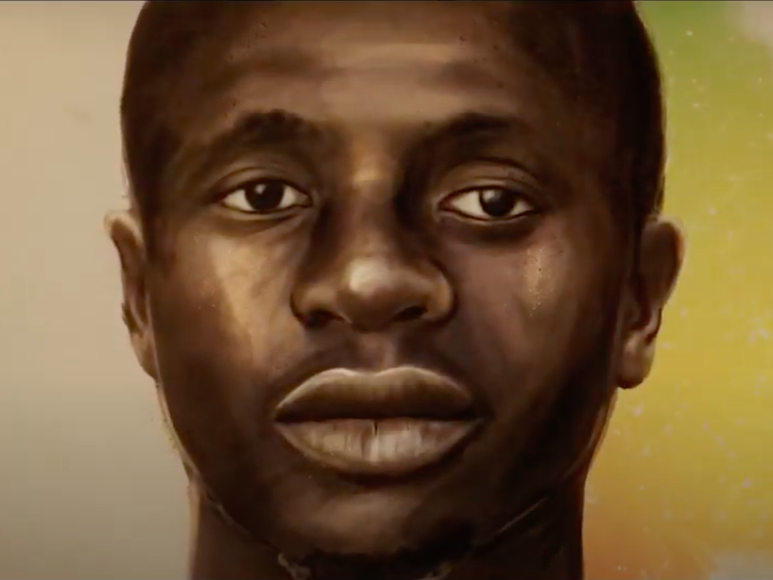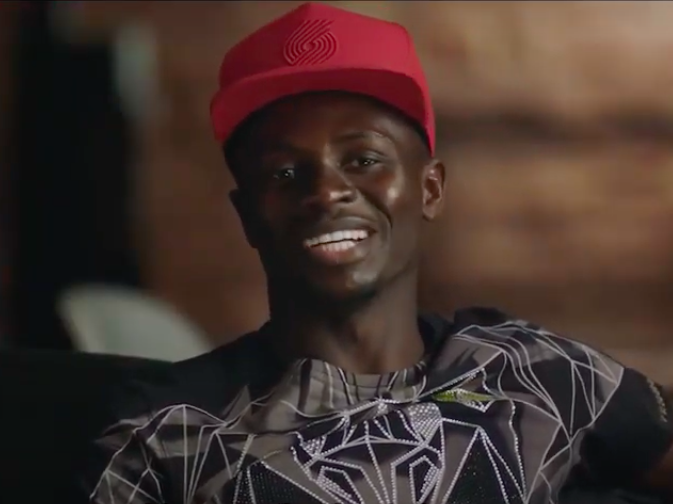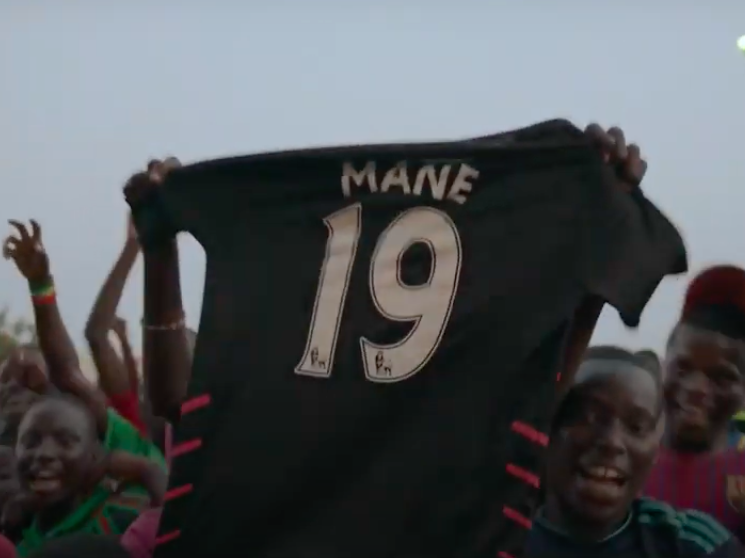Sadio Mane’s documentary shows the boy from Bambali carrying Senegal on his shoulders like never before
The 28-year-old is living his twin ambitions of being a great footballer and a great reference point for his people as evidenced in a new documentary

There is a scene in Sadio Mane: Made in Senegal where the Liverpool forward is standing on the uppermost tier of a school he has spent £250,000 to build in his village of Bambali.
Gathered in the courtyard, looking up at him, are hundreds of people from the area. Young and old, many clothed in the kits he has donated, they hang on his every word. He is not just their superstar, carved from the same dusty streets and struggles, he is their hope. And just as he does on the football pitch, Mane delivers for his people.
“I know you want many things,” he says. “But education is the priority for our generation. School comes first.”
Thanks to the 28-year-old, the community now has a proper institution to impart knowledge. “You should be in good health before you go to work,” Mane adds, stating his next goal is to finish the construction of the hospital he is building.
That means more to him than muddling any opposition goalkeeper. Yes, more than even when he swivelled away from Bayern Munich’s Manuel Neuer with such ruthlessness in the Champions League last season that obituaries were filed on the German’s status as the world’s best in his position.
The hospital is personal to Mane. Aged seven, the Senegal international’s father passed away without receiving medical attention after suffering with stomach pains.
“We were about to play on the field when a cousin approached me and said: ‘Sadio, your father passed away,’” Mane remembers in the documentary, screening on Rakuten TV. “I couldn’t really understand it.”

There was no health centre in the village, traditional medicine didn’t work and so the player’s dad was rushed to a neighbouring settlement, but it was too late.
Mane was driven to build a hospital by that memory as well as that of his sister having to be born at home. He doesn't want anyone else in his province of Sedhiou to ensure the same medical complications and the facility is around six months from completion.
Throughout the feature film, just over an hour long, it is clear that Ballonbuwa - the ball wizard - carries Senegal on his shoulders, in his heart and wears the love of where he’s from on his sleeve.
He beams during visits back to the country, where he is always swamped yet always gives of his time. “Here, we live as a community, people share everything.” Mane says. “In Europe people keep to themselves.”
On the drive back to his house from Anfield after Liverpool’s unthinkable Champions League comeback against Barcelona, his first thought is “there’s a lot of people back home who want to speak to me.” Senegal’s president, Macky Sall, was one of them.
No matter how much Mane achieves - his name now comfortably among the world’s best - he will always circle back to where his improbable journey started.
Bambali, a seven-hour drive away from the capital of Dakar which requires border crossings through Gambia, is the definition of remote.
While Mane repurposed grapefruit as a ball, his family were the imams of the village. They expected the youngster to get a good education and farm the land, but he had a singular focus.
As the best footballer in the area, Mane wanted to expand his scope and at 15, he embarked on a secret two-week trip to Dakar for trials with help from his best friend, Luc Djiboune.
His family had found him during the second stanza of his stay in the capital and forced him back home. “It was the worst time when I returned to the village,” Mane recalls. “I had a lot of hate. I said I’m here under one condition that I have just one more year of school and then it’s football. They respected my decision.”
It was in 2009 when his story started to take shape at Generation Foot, the development centre that also counts Diafra Sakho and Papiss Cisse as alumni.
Mane turned up for a testing session in old, torn boots and without proper football shorts. The recruiter Parmalin Diatta was sceptical, but the speedster silenced him with four goals in the first game. The legend of the rapid, tenacious and technically gifted player soon spread and Oliver Perrin, a talent scout for Metz, became a regular observer.
“He intercepted a ball in the penalty area and proceeded down the entire field before making the decisive pass to the goalscorer,” the spotter said.
“It almost looked like a video game. It wasn’t normal.”
Six months later, Mane signed an internship contract with the French club and got his first dose of a European winter on January 4, 2011.
“We could immediately see his positive energy,” Metz manager Vincent Hognon said.
“He really shines. Every time he plays, something happens.”
Mane’s wizardry was delayed by eight months due to a hernia operation, but then he “played football like the greats,” Perrin remembers. “I used to call him ‘crazy boy’ for how much he loved football. He always played like he was having fun, but he was serious.”

Mane starred at the 2012 Olympics and Jurgen Klopp passed up the chance to sign him for Borussia Dortmund, the attacker's trajectory taking him to Red Bull Salzburg and Southampton.
In the summer of 2016, the German phoned his agent Bjorn Bezemer and sold him the idea of Sadio being central to Liverpool’s rebirth as a domestic and continental force.
The individual honours have streamed in since, with Mane lifting the personal accolade he most covets: African Footballer of the Year.
He is a Champions League winner and during the parade in Liverpool city centre, he was quiet on the team bus as he took in every little scene. As the victors toured through the waterfront, vignettes of Mane’s own journey played on his mind.
The emotion layered on his face was as crystalline then as when he is walking through the house he built for his uncle, Sana Toure, in Bambali and when he is addressing locals at the school he gifted them.
Mane continuously references dreams and it is during these snapshots that you realise he is living his twin ambitions of being a great footballer and a great reference point for his people.
As per the banner that hangs over homes in his village, “l’enfant de Bambali, le fier de toute une nation” - the child of Bambali has become the pride of an entire nation.
Moreover though, Mane has lit up the world like he always believed he could. “I honestly don’t have no idea of what makes me exceptional. I’m a very, very simple person,” he says.
It is exactly who he is that makes him worth watching.
Join our commenting forum
Join thought-provoking conversations, follow other Independent readers and see their replies
Comments
Bookmark popover
Removed from bookmarks